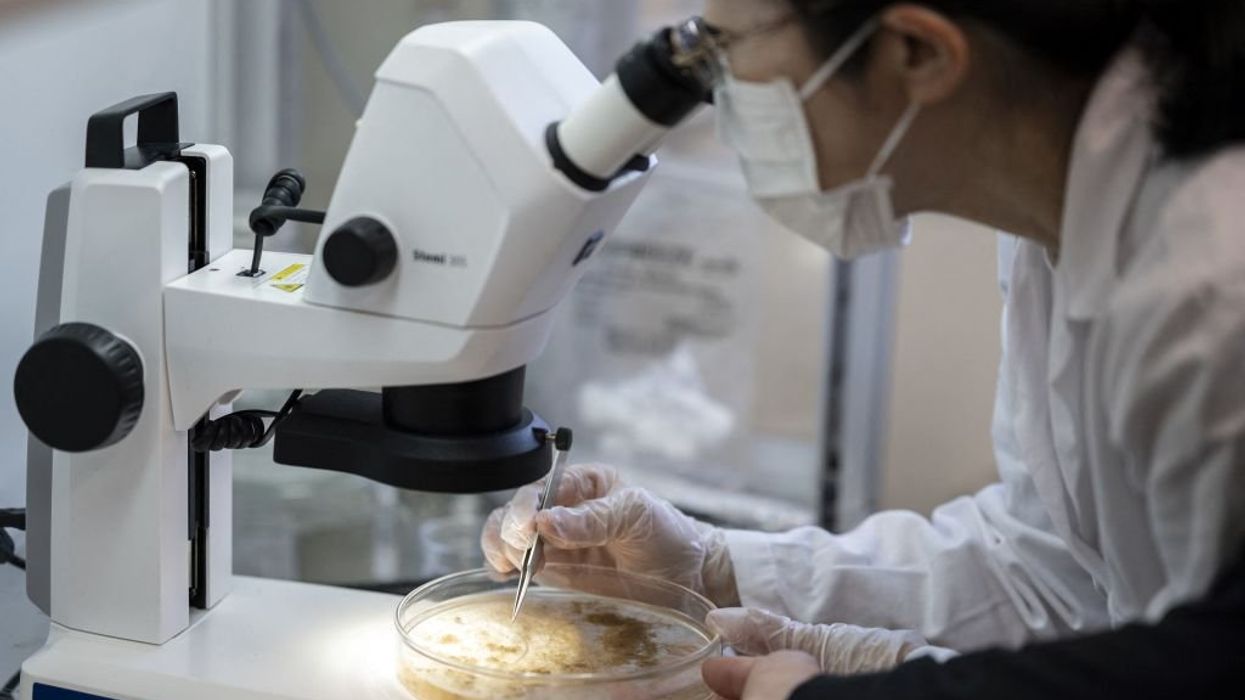
Photo by CHARLY TRIBALLEAU/AFP via Getty Images

A new study published in June found that humans might be inhaling approximately 16.2 bits of plastic every hour, which is enough to make a credit card per week.
“How microplastics are transported and deposited in realistic upper airways,” published June 13, is the “first-ever study” to use computational modeling to understand the transport of microplastics in the upper lung airways.
“In the last few years, scientists have found microplastics in drinking water,” the study stated. “Most previous studies consider microplastics to be ingested by humans orally through water or food. However, inhalation also allows microplastics to reach human tissues.”
“Recently, microplastic particles have been tracked in the lower airways for the first time in history,” it continued. “The presence of microplastics in lower airways increases the long-term microplastic exposure concerns for respiratory health.”
Microplastics are tiny particles of plastic that are less than five millimeters, and, according to the study, they are typically generated from the degradation of plastic products, tires, and industrial breakdown.
The study reported that tiny particles of microplastics can travel to the deeper lung airways, while larger particles cannot. The flow rate, shape, and size of the microplastics also impacted the deposit pattern, it stated. Some microplastics are also small enough to become trapped in different airway branches.
The study, led by Dr. Mohamed Islam of the University of Technology in Sydney, Australia, noted that microplastics often contain toxic pollutants and chemicals that “could potentially cause serious health hazards in the respiratory system.”
While the full scope of health risks linked to microplastics is not clear, research has indicated that inhaling or ingesting plastics can lead to a disruption in the gut microbiome, inflammation, lower sperm quality, lower testosterone levels, and effects on memory, Science News reported. These tiny plastic particles have been found inside the human body, including the lungs, maternal and fetal placental tissues, breast milk, and blood.
Science News reported that some chemicals added to plastics, such as bisphenol A, or BPA, and phthalates, are known to cause health problems. For instance, BPA exposure has been tied to reproductive and metabolism issues in adults and developmental effects on children. Phthalates have been linked to obesity, insulin resistance, and fetal development and reproductive problems.
Like Blaze News? Bypass the censors, sign up for our newsletters, and get stories like this direct to your inbox. Sign up here!